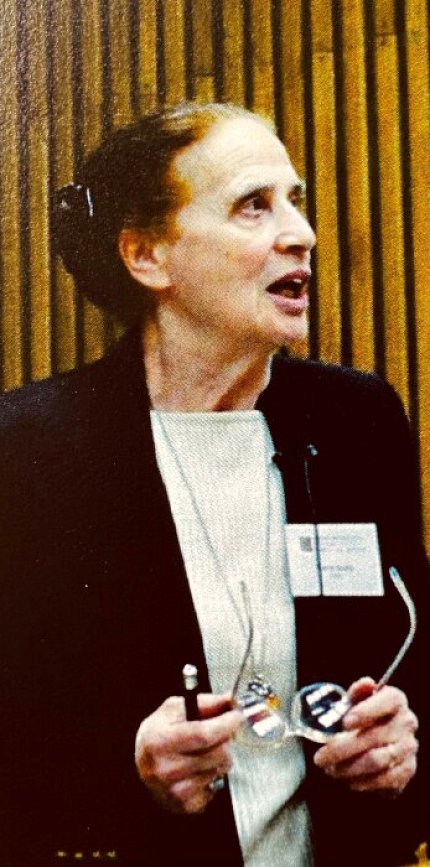NINDS Mourns Research Pioneer Spatz

Dr. Maria Spatz, a retired senior scientist in the Division of Intramural Research at the National Institute of Neurological Disorders and Stroke (NINDS) and a pioneer in research on the blood-brain barrier, died Jan. 26 at age 99.
She was one of NIH’s first leading women scientists and a highly esteemed member of the NINDS family. She served as section chief in the Laboratory of Neuropathology and Neuroanatomical Sciences from 1970 to 1990, then as a senior scientist in the Stroke Branch from 1991 to 2005, and later as a special volunteer in that branch from 2005 to 2018.
Her research focused on blood-brain barrier regulation and alterations in cerebral blood flow associated with cerebral ischemia and traumatic brain injury. She was one of the first scientists to isolate and culture cerebral microvascular endothelium cells and define properties linked to the function of the blood-brain barrier in ischemia. Her seminal work on cerebral microvessels helped establish the NIH neuroscience initiative to study brain ischemia in the early 1970s.
Born in Poland in 1925, Spatz earned her undergraduate degree from Jagielonski University in Krakow and her medical degree from Philips University in Marburg, Germany. She then immigrated along with her husband Marek to the U.S., where she began her clinical residency in New Jersey.
Upon receiving her degree, she furthered her studies at the University of Michigan, where she became a faculty member in the department of pathology. She studied the effect of gut disease on the neural brain system. This captured the attention of the scientific community and led to a principal investigator position in NIH’s Department of Pathology.
In addition to her work at NIH, Spatz served as a special expert in the neurotrauma department at the Naval Medical Research Center in Silver Spring, Md., from 2003 until the time of her death.
Well-known as a brilliant and accomplished scientist, Spatz is remembered not only for career achievement but also by many for her warm and outgoing personality. According to former colleagues, she enjoyed helping young scientists and did everything she could to encourage their success. At professional meetings she frequently was surrounded by former postdocs and collaborators. She and Marek enjoyed hosting dinner parties for their friends and were strong supporters of the arts—especially opera.
Spatz was preceded in death by her parents Stanislav and Helen Poznanski, her sister Lila, and Marek, her husband of nearly 70 years. Donations in honor of Spatz can be made to the Children’s Inn at NIH, https://childrensinn.org.
